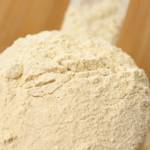Macrominerals for Horses: Are Supplements Always Necessary?

Conscientious horse owners try to feed their horses in a way that provides all of the necessary nutrients in the proper quantities for good health and body maintenance. Most commercial feeds are formulated to fulfill those requirements. However, it’s tempting to think that if a little of something—a vitamin, mineral, or source of energy—is good for a horse, a little more might give him that extra boost in performance. This isn’t always a good idea, and in some cases, oversupplementation can actually be harmful to horses.
Calcium and phosphorus have many important functions besides building and maintaining the horse’s skeleton. Calcium is involved in blood clotting, nerve transmission, and temperature regulation in addition to its role in the proper action of the heart and other muscles. Phosphorus is needed for various cell functions and energy metabolism. These minerals must be provided in the proper ratio to allow them to work together. Excess calcium is not as dangerous as a high level of phosphorus that may be reached in horses that eat a great deal of grain and very little forage. An oversupply of phosphorus disrupts the body’s absorption of calcium, leaving the horse at risk for skeletal problems, weight loss, and thyroid malfunction.
Potassium, sodium, and chloride are electrolytes that are lost in sweat when horses perform strenuous exercise. Proper muscle and nerve function depends on adequate supplies of these minerals. Forage provides potassium, while sodium and chloride must usually be provided as a supplement in the form of salt. Exhaustion, decreased sweating, and muscle incoordination may be noticed in horses that are deficient in these electrolytes. An oversupply is usually not dangerous because extra potassium, sodium, and chloride are easily excreted in the horse’s urine. In certain cases, however, too much of these minerals can cause problems for some horses. Consumption of too much salt can cause colic, diarrhea, weakness, and even death in horses that don’t have access to plenty of water. Horses with a genetic condition called hyperkalemic periodic paralysis, or HYPP, build up stores of potassium that cause muscle tremors, cramping, and collapse. These horses must be put on diets that are extremely low in potassium.
Horses on normal diets usually get enough magnesium in their daily intake of grain and forage. Besides its roles in bone structure, energy metabolism, and muscle and nerve function, magnesium may have actions that relate to insulin sensitivity and nervous behavior. Supplements that contain magnesium may assist in calming some flighty horses, but high levels of this mineral can cause digestive and metabolic problems.
Sulfur is also provided in adequate amounts by a horse’s normal intake of forage and grain products. Excess levels are excreted in the urine and feces. Supplementation is usually not needed, as deficiency has not been reported in horses.
As long as horses have access to good-quality forage, are eating well, and are given enough grain to supply energy for moderate exercise, there is little reason to provide a mineral supplement that could skew the ratio of calcium and phosphorus or disrupt vital metabolic functions. Growing foals, horses in hard exercise, and those with particular health conditions like HYPP may need somewhat more or less of some minerals than mature idle horses. Owners of these horses should consult an equine nutritionist for specific dietary recommendations. Most other horses will have their mineral needs met if they have access to pasture or hay and are fed a commercial feed designed for their age and use.
Have a question about horse nutrition? Register or log in to Equinews.com, and then go to Answer Exchange to submit a question to KER nutritionists.








